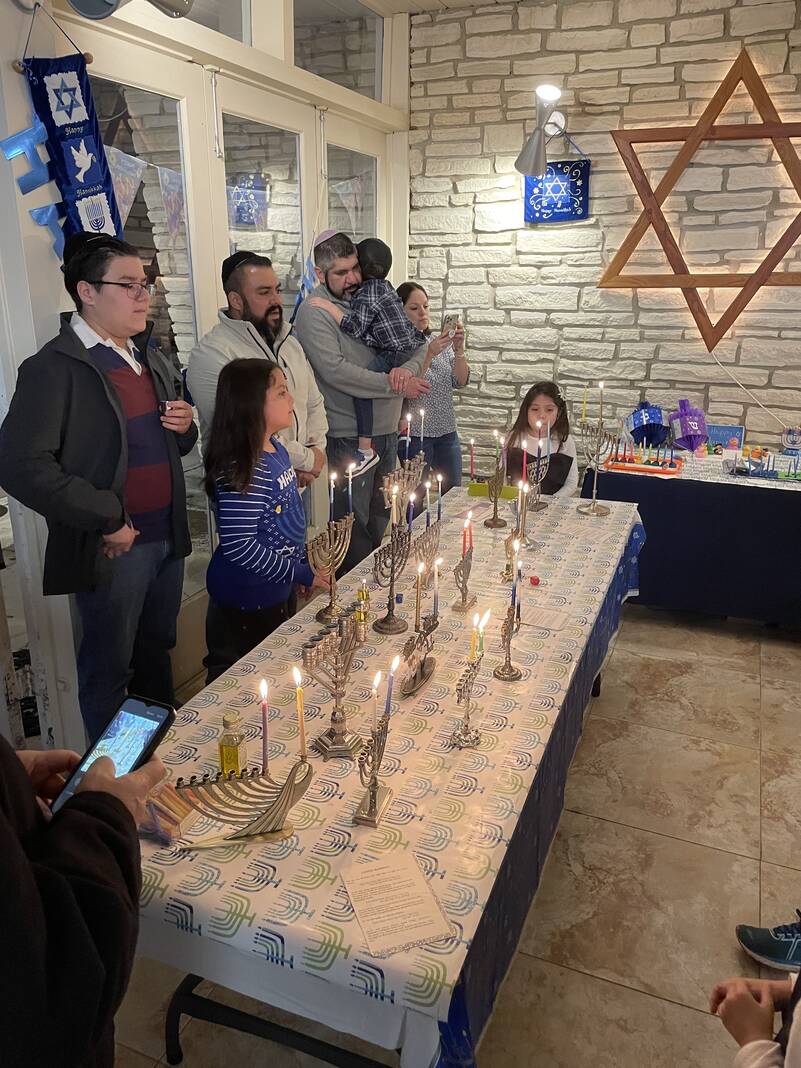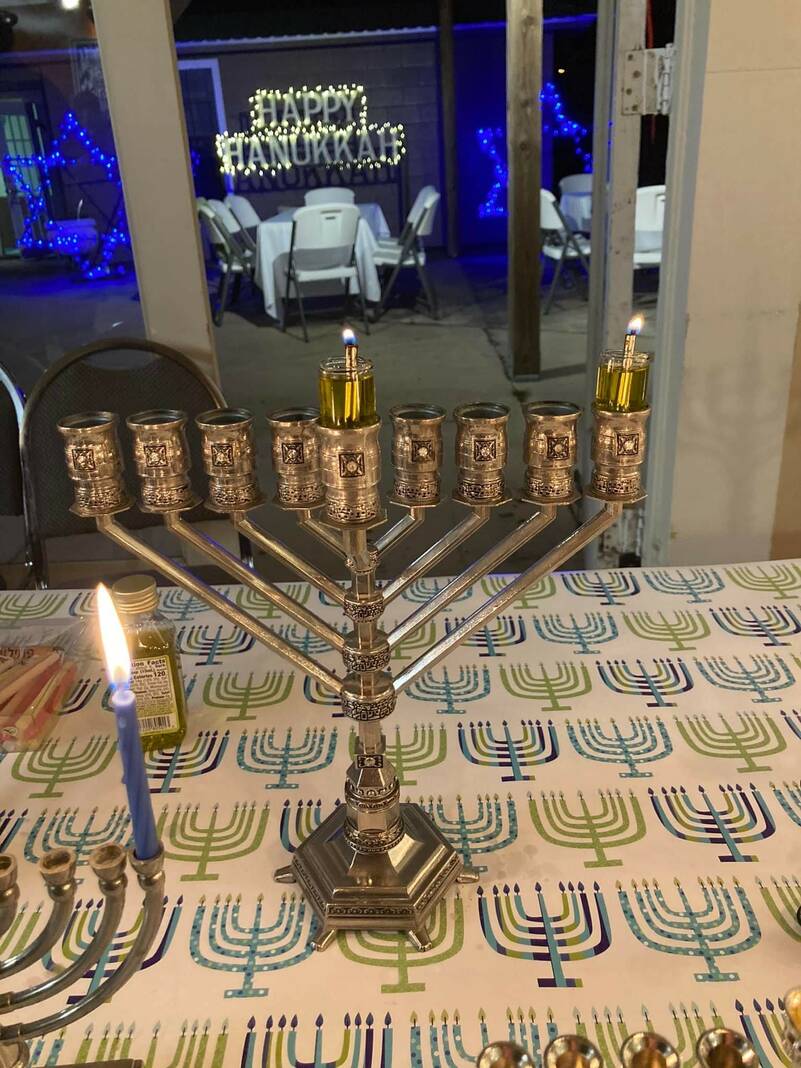
HARLINGEN — The Hanukkah candles burn bright through the ages; their message extending from a war of words, beliefs and arms centuries ago into the darkness creeping across today’s world.
Hope lives.
Monday is the last day of Hanukkah, an eight-day celebration in which Jews everywhere remember the Maccabees who rose against their Greek oppressors and claimed the right to practice their faith.
In understanding the significance of Hanukkah, one must first understand it is a totally different celebration from Christmas.
“Hanukkah itself has nothing to do with Christmas,” said Rabbi Frank Joseph at Temple Beth Israel.
“In fact, the truth could not be more different because Christmas is celebrating the birth for Christians of their savior and messiah, which is a very spiritual holiday in that context. Hanukkah is commemorating a military victory. It’s basically commemorating a military victory that enabled the Jewish people to survive and to be able to free to worship and to be able to live as Jews.”
The eight days of Hanukkah are celebrated with the lighting of the Chanukiah, a special menorah used during the celebration.
“People eat potato latkes everyday, because they’re made in oil, symbolizing the oil that was used,” Joseph said. “It has become a custom, especially since the modern state of Israel came into being in 1948, that we eat donuts because donuts are made from oil as well.”
There are the services at synagogue — the reading of the Torah, the saying of prayers and the singing of songs to remember history and embrace the future.
And in that embracing of the future there is the memory of a military victory from which sprang something eternal – and spiritual.
When the victors cleaned up the temple in Jerusalem and rededicated it, they lit the menorah with a cruse of oil.

But there was only enough for one day.
“When they returned eight days later, the oil in the menorah was still burning,” Joseph said. “And so because the oil in the menorah was still burning eight days later, rabbis told us that it should be dedicated, that Hanukkah should be an eight-day celebration because the miracle of the menorah lasted eight days.”
To Fernando Russek, Hanukkah is about the freedom of religion.
“The Jews were fighting the Syrian Greeks, which had taken over the country,” said Russek, a congregant at Temple Beth Israel.
“The Greeks had imposed very strong restrictions against religion and forbidden them from celebrating the shabbat or having circumcision,” he said. “They wanted to Hellenize everybody to become Greek. They did horrible things to Jews.”
A little history at this point.
After Alexander the Great, king of the Greek state of Macedonia, died in 323 B.C., his kingdom was divided into different parts, one of them being the Seleucid Empire. This was also the beginning of the Hellenistic Period in which Greek culture was spread to far-away lands.
Such was the situation in which the Jews found themselves, and it was an intolerable one over which they ultimately triumphed.
The Jews turned this oppressive situation into an opportunity for cohesiveness and singular purpose: the perpetuity of their faith and people.
This power, which continues to this moment, was lit by the menorah burning eight days on only one day’s worth of oil.
“It kind of cast it into a significance,” said Russek. “God tells us that even in cases of something that looks like we cannot win against, if you do something for the potentiality that it can go further.”
And it did go further.
That light shines through and burns bright through the centuries, overcoming the Roman oppression, the diaspora, the Spanish persecution and all the obliterations of the 20th century.




